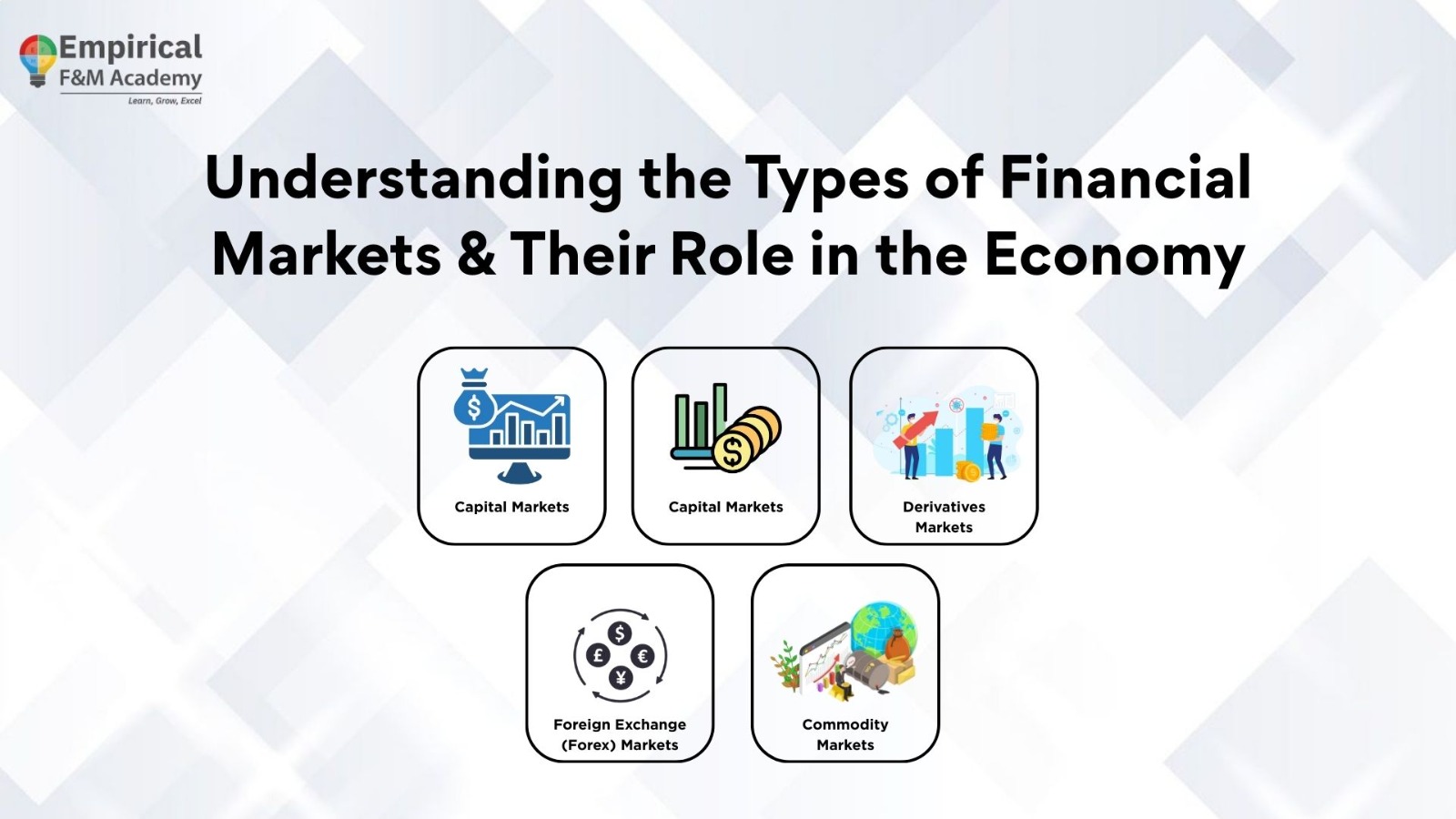Understanding the Types of Financial Markets & Their Role in the Economy

Understanding the Types of Financial Markets & Their Role in the Economy
Financial markets are the backbone of any economy. They connect investors with businesses, help governments raise funds, and give individuals opportunities to build wealth. Let’s break down the major types of financial markets and understand their role in economic growth.
Types of Financial Markets
1. Capital Markets
Capital markets deal with stocks and bonds. Companies raise money by issuing shares, and investors participate to gain returns. This is where concepts like IPOs, stock trading, and Equity Research and Valuation become crucial for making informed decisions.
2. Money Markets
Short-term borrowing and lending take place here. Instruments like Treasury Bills, Certificates of Deposit, and Commercial Papers provide liquidity to the system. Banks and institutions actively use this market to manage funds.
3. Derivatives Markets
This market deals with contracts based on underlying assets like stocks, commodities, or currencies. Futures and options are key instruments here. Many traders take up an Options Trading Course or Futures training to learn how to hedge risks and speculate effectively.
4. Foreign Exchange (Forex) Markets
Here, currencies are traded globally. It’s the largest financial market in the world, operating 24/7. Exchange rates affect imports, exports, and global trade.
5. Commodity Markets
These involve trading raw materials like gold, crude oil, and agricultural products. Commodity prices directly impact inflation and cost of living.
Role of Financial Markets in the Economy
Mobilizing Savings – Investors put their money into financial markets instead of keeping it idle.
Capital Formation – Businesses raise funds for expansion, leading to industrial and economic growth.
Liquidity – Markets provide easy entry and exit, allowing investors to convert investments into cash.
Price Discovery – Through demand and supply, markets decide fair prices of assets.
Risk Management – Derivatives and hedging strategies reduce uncertainty for investors and businesses.
Learning to Navigate Financial Markets
For beginners and professionals, structured learning is key. Whether it’s a Technical Analysis Course to study price charts, a Share Market Course to understand basics, or a Fundamental Analysis Course to evaluate company financials, education bridges the gap between theory and profitable practice.
At advanced levels, programs like Equity Research and Valuation help participants understand corporate balance sheets and forecast future performance
Final Note:
Financial markets are not just about trading — they are about creating opportunities, supporting growth, and building the economy. With the right knowledge from a Fundamental Analysis Course or Technical Analysis Course, anyone can participate smartly and responsibly.
By Nehal Taparia
This content is for educational and knowledge purposes only and should not be considered as investment or Trading advice. Please consult a certified financial advisor before making any investment or Trading decisions.
Our Recent FAQS
Frequently Asked Question &
Answers Here
Q1: Why are financial markets important for a country’s economy?
They channelize funds, support business expansion, create jobs, and stabilize the flow of money in the economy
Q2: I’m a beginner. Where should I start learning?
Q3: What’s the difference between Technical Analysis and Fundamental Analysis?
Q4: Is learning Options and Futures trading risky?
Q5: How does Equity Research and Valuation help investors?
Copyright © By Empirical F&M Academy. Design & Developed by Techno Duniya


.jpg)


.jpeg)




